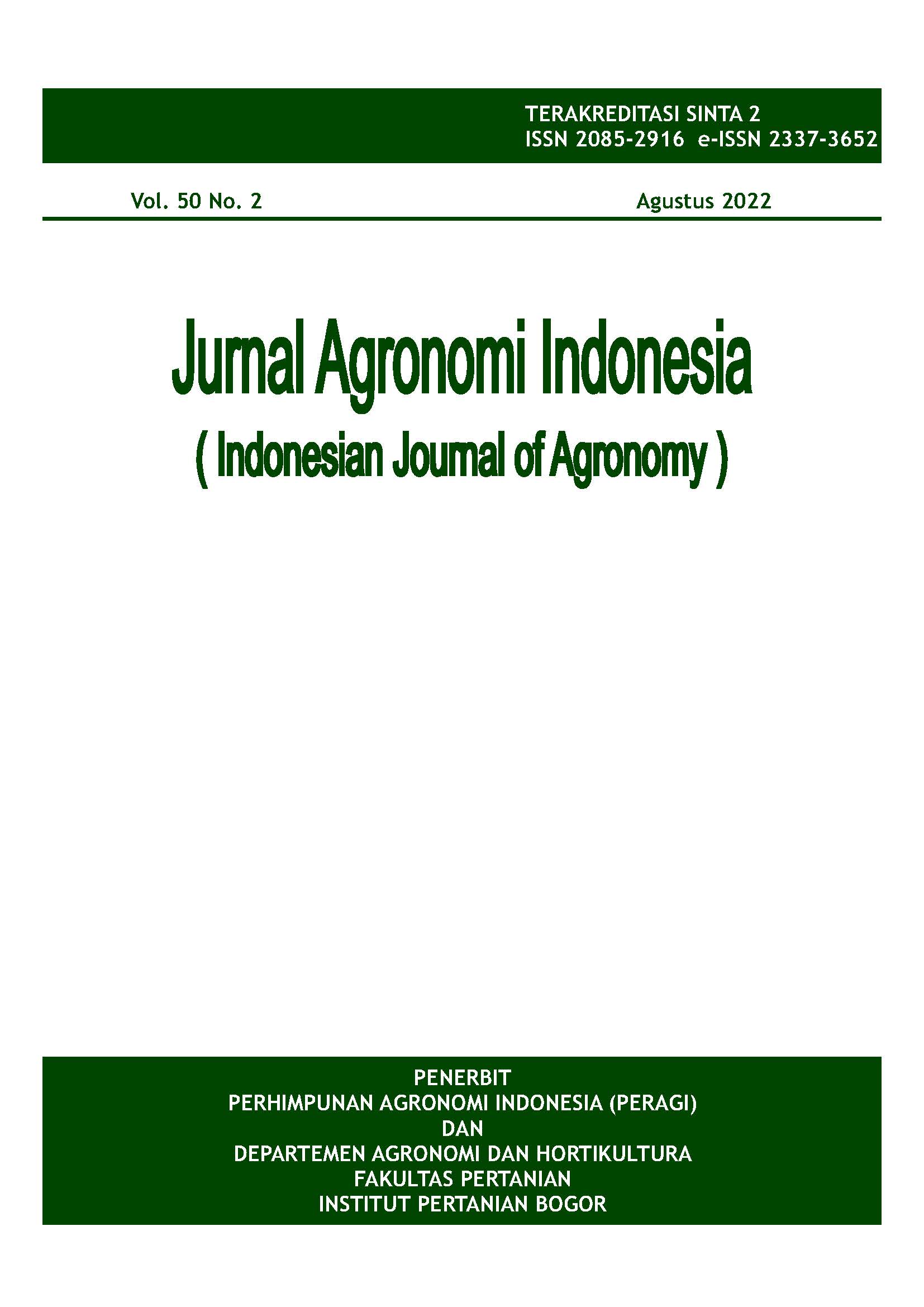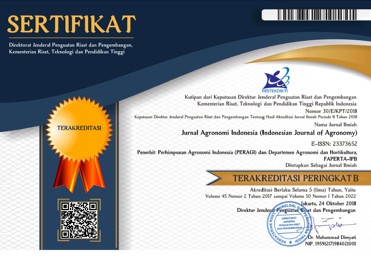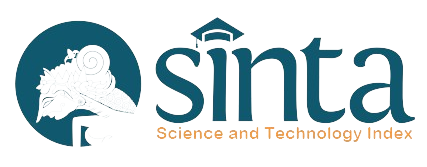Induced Mutation by Colchicine in Java Cardamom (Amomum compactum Soland. ex Maton) Generation MV1
Abstract
Java cardamom is an important commodity that produces secondary metabolite. Secondary metabolites of Java cardamom are utilized as an anti-inflammatory, antibacterial and anticancer. Improve secondary metabolite through colchicine-induced mutation are necessary to get polyploid. It has been reported that polyploid produces higher secondary metabolites. This research aimed to describe Java cardamom’s phenotypes resulting from colchicine treatment and identify ploidy levels through flow cytometry. This research was conducted from July 2021 to January 2022 at the Leuwikopo Experimental Field, Faculty of Agriculture IPB using a randomized complete block design (RCBD) with three replications. The buds were soaked in different concentrations of colchicine (0, 0.05, 0.10, and 0.15%) with a shaker at 100 rpm for 6 hours. Plant height, number of leaves, number of tillers, leaf length and width, pseudostem diameter, number of stomata, greeny leaf score, and ploidy levels are observed. The result showed that 0.10% colchicine caused leaf malformation and chimera. Colchicine treatment could inhibit plant growth. Colchicine treatment produced lower plant height during 16 weeks of observation, fewer leaves at 10-18 WAP, and fewer tillers at 14-18 WAP. However, the colchicine treatment did not produce polyploids.
Keywords: flow cytometry, phenotype, ploidy levels














